Search Results
Showing results 1 to 20 of 36

Battleships: Searching Algorithms
Source Institutions
This activity explores the main algorithms that are used as the basis for searching on computers, using different variations on the game of battleships.
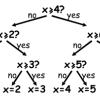
Twenty Guesses: Information Theory
Source Institutions
This activity introduces the idea that computer scientists measure information by how "surprising" a message is.
Stacking Dice
Source Institutions
In this math game, learners try to earn the most points by winning stacks of four dice. Learners practice number recognition and addition skills.

Whose Fault Is It?
Source Institutions
In this seismic simulation, learners play a "who-dunnit" game to explore earthquakes.
Pass or Roll!
Source Institutions
In this math activity, learners play a game in which every roll can earn you counters, but if you roll the wrong number (6), you have to put everything back.
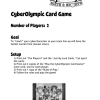
CyberOlympic Card Game
Source Institutions
In this Cyberchase activity, learners use numbers to create CyberOlympic teams with the fastest times.
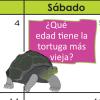
Calendarios para cualquier año
Source Institutions
Este Web site contiene links a 12 calendarios (12 meses). Cada mes contiene actividades sobre matemáticas.
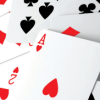
Odd Man Out
Source Institutions
In this math game (Page 14 of the Are You Game? PDF), learners determine the probability of getting an even versus an odd product using the numbers on a regular deck of cards.
How Many In a Minute
Source Institutions
In this activity, learners will keep track of how much they can do in one minute. Instructors can pick something everyone will do for a minute, such as jumping up and down or drawing stars.
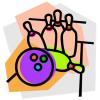
Strike 'em Down & Add 'em Up!
Source Institutions
In this activity, reuse two-liter bottles to create bowling pins. Learners practice math skills and develop a concept of verifying answers, while bowling and keeping score.
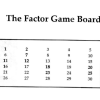
Number Systems and Number Theory: Factor Game
Source Institutions
In this math lesson, learners play a game to identify the properties of prime, composite, abundant, deficient and perfect numbers.
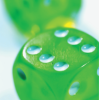
Race to the Top
Source Institutions
In this math game (Page 6 of the Are You Game? PDF), learners examine the probability of rolling sums from 0 to 12 with two dice. The first player to reach the finish line is the winner.
Pocket Change: Math and Coin Toss
Source Institutions
In this activity, learners will play a coin toss game where the highest total wins. Combine coin recognition, addition, and probability with a game learners can play on their own.
Pattern Sticks
Source Institutions
In this activity, learners compete to be the first to win twenty counting pieces. First, learners draw patterns on only one side of four craft sticks.

Is it a Fair Game?
Source Institutions
In this math activity, learners play two versions of a card game and decide what makes a game fair. Learners also practice addition and subtraction skills.
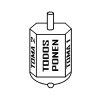
Toma Todo
Source Institutions
In this activity, learners play a traditional Mexican game of chance with a twist. Learners take turns spinning a special "Toma Todo" top.

Tossing Coins
Source Institutions
In this math game (Page 17 of the Are You Game? PDF), learners investigate probability by tossing coins.
Any Year Calendars
Source Institutions
This PDF contains 12 calendars (12 months). Each month contains activities about math. Things to do on familiar holidays (like July 4), less common holidays (like Backward Day), and any day.

The Great Toss Off!
Source Institutions
In this math game, learners toss plastic cups to land just right and collect points to win.
Pom-Pom Probability
Source Institutions
In this math activity, learners predict how many pom-poms they can toss inside a circle from three feet away. Use this activity to help learners explore probability.
